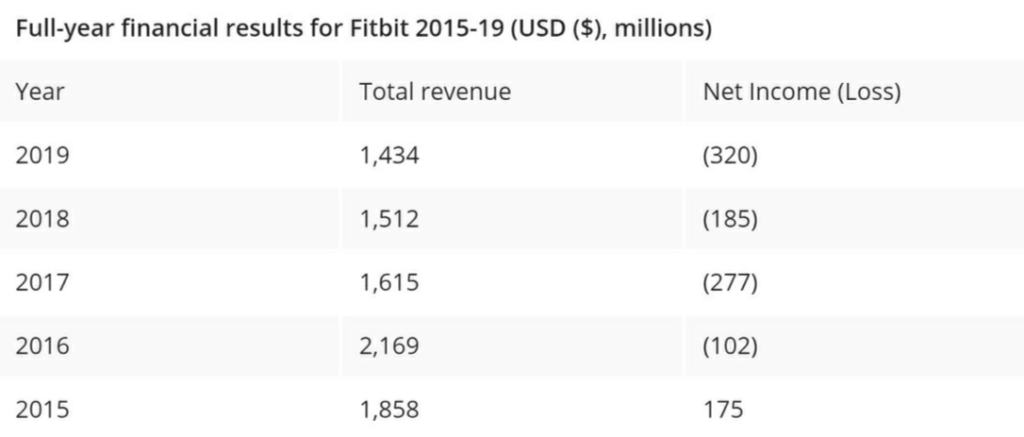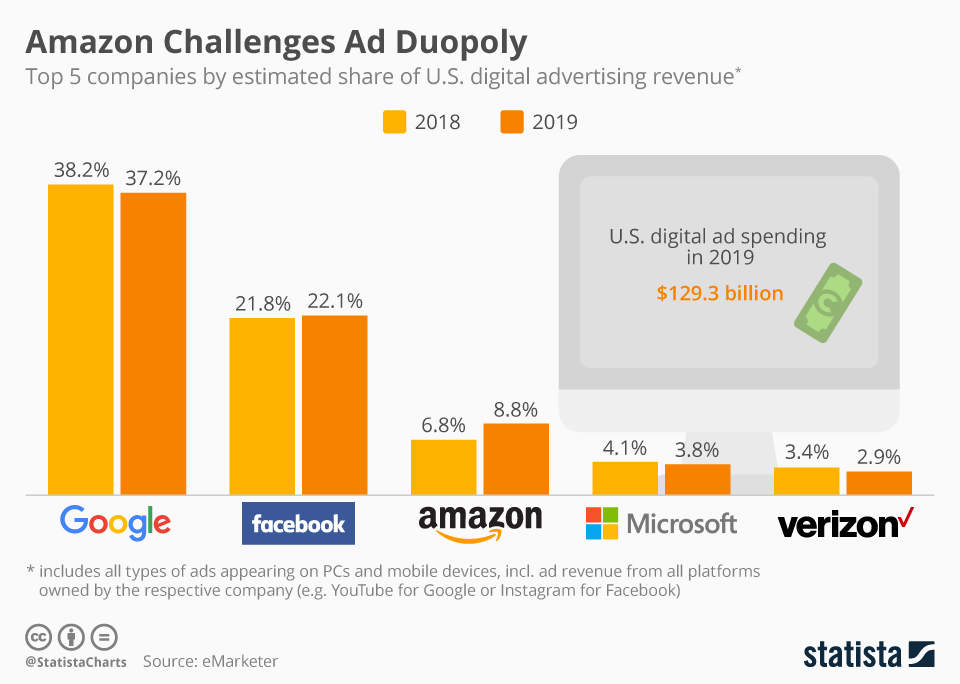Data ProtectionTechnology Law / Cyber Law
Privacy and Competition concerns over Google’s Acquisition of Fitbit
Introduction
Acquisitions and Mergers have become extremely common in the world of technology wherein, it is a common trend to see the tech giants acquire smaller companies to expand their reach and increase the consumer base while by way of their hold on wide-ranging data. In November 2019, Google LLC (Google) made its intention to acquire the Fitbit public which was met with many polarized responses. The $ 2.1 billion transaction has been a hot topic for many in the business world and has raised valid concerns in relation to privacy and anti-competitive potential of the acquisition. Fitbit is a wearable fitness equipment company, that tracks and collects personal data ranging from sleep patterns, dietary patterns, breathing, exact locations by way of GPS, menstruation cycles, heartbeat to biometrics through a variety of its devices.[1]

This acquisition firstly came into light, raising many eyeballs primarily because the company had been running into losses and its business was heading south, in comparison to all its competitors. Thus, there were conjectures that the acquisition of Fitbit was not profit-based, and was rather, primarily dependent on the kind of unique data that the acquisition would give them access to.
Privacy Concerns
It is no hidden fact that Google is one of the biggest organizations that has created and based its business on data collection and its usage to create digital advertisements and other services. It perfectly joins the trail of Google’s acquisition of Fitbit as the datasets are extremely personal, mostly health-related. Google had not really delved into such private and unique data before which is why the acquisition came about. More often than not, such data would have made search optimization better resulting in smoother functioning of all Google-based platforms, keeping the customer base satisfied. However, there are major concerns raised by them in regard to the usage, storage, and privacy of such data. In the wake of the same, many users have resorted to deleting their Fitbit accounts and tossing the band into the trash.[3]
Mainly two points of objections are highlighted in this scenario. The first one being the collection of data. When Google acquired Fitbit, it is pertinent to note that the Fitbit users, before such acquisitions did not sign up for their data being collected by Google. Even after the acquisitions, the users would not be given a choice of whether they want Google to access their data or completely respect their privacy regarding the same. These questions remained unanswered and raised many objections from the users.[4]
The second objection is the users’ permission to use the data. Google has categorically refrained from selling such data. But this does not promise that the tech giant itself would not use the data to optimize the digital ads or use it for other purposes. Apart from this, Google has not yet taken the users permission to use the data that it has collected by way of acquiring a company. This simply affirms that Google is not bound to not use the data for business and advertising.[5] Moreover, it has not committed to refrain from using personal health-related data in non-advertising businesses. This implies that Google could easily use such data for health services or life insurance and related services.[6]
Looking at the past trajectory, Google does not have a good repute when it comes to maintaining privacy and handling data. DoubleClick is an online advertising platform that Google acquired while reassuring the users to not combine the users’ data with its own unless the user consented to the same.[7] Eight years down the line, notwithstanding its commitment to privacy, Google conveniently deleted this term from its privacy policy.[8]
In response to the same, many data protection organizations have been vocal about their unwillingness to support such acquisitions. The European Data Protection Board (EDPB), which is an advisory to the European Commission on Data Protection Law, says “it’s worried about the massive tech firm accumulating yet more personal data”.[9] It is a consensus between such Data Protection organizations that such prospective accumulation of sensitive personal data by a single body could be a threat to the Fundamental Right to Privacy of the People, as guaranteed in India under Article 21 of the Indian Constitution.[10] There is no debate on the fact that the intricacies of data usage and privacy implication of such acquisition needs to be transparent and has to be studied by such bodies before approving them.[11]
Competition Law Concerns
Due to Google’s acquisition of Fitbit, there have been numerous concerts over the antitrust laws of different nations. Fitbit had about 28 million active users that Google would acquire along with their most personal data.[12] Google, through its various platforms, has one of the most extensive data collections that there is. It collects such data from platforms like Google search, Gmail, YouTube, Google Maps, and Android. It is not a secret that the data collection is not exclusive to these platforms but also includes the third-party websites that advertise via Google or use Google Analytics.
Analysis of the Acquisition under Antitrust Laws
With Google’s acquisition, it is undeniable that the Fitbit wearable device’s highly sensitive data shall be added to the large amounts of data that Google already tracks. However, with this acquisition, Google has left many questions unanswered about the use of sensitive data thus, leaving the shame open to conjectures and ambiguity. The nature of data that Fitbit collects is extremely private and personal, which includes sleep, heart rate, weight, food intake, precise location, etc. This acquisition will not only help Fitbit but Google too by helping it build better technologies and delve into newer areas of voice user interface and gesture control. This is essentially an opportunity for Google to delve and operate in an area where it does not function. Fitbit will be at an advantage, as compared to its competitor, as it will have the expertise of Google’s operating system and the software along with a reputed IP and brand.[13]
There are three major concerns that arise in terms of the involvement of competition law. Firstly, it is pertinent to note that such an overload of data, which gives an organization immense power over the others, can lead to dominance over other competitors in the market. It is also to be observed that Google holds a considerable advantage over the other competitors that deal with wearable devices of similar nature as it can simply cut their access to the data it holds and sells.[14] Google can, for instance, refrain its competitors in the sector of wearable devices, like Apple and Samsung by cutting down the access of Google Maps, Google Play Store, Google OS, and many other applications and refraining them to use such data. This enables a powerful organization with supreme data control on data to overpower and overshadow the industry it operates in.
Secondly, Google can make use of the newer, sensitive, and more personalized data to make its search optimization better and easier. The data acquired by way of Fitbit’s acquisition can act as a supplement to the data owned by Google, already. By getting hold of Fitbit’s data sets which are unique in nature, Google can use them to expand its already established market power in certain markets that relate to advertisements of health and technology. For instance, Google ads could efficiently target those consumers with heart diseases or obesity. Thus, this acquisition will clearly give a giant push to Google as an organization that is already on the verge of dominating other competitors due to the data it holds. [15]
Thirdly, the new health dominated data collected by Google can help it create newer applications, products, or simply introduce new health services, making Google the go-to for all the people. Such fitness-related data will enable Google to build and develop newer ideas and such a trend can result in clear dominance of the organization in all possible fields. Prof. Stucke at the University of Tennessee believes that the wide-ranging data that Google would hold will be used by the company to establish its dominance in other markets, for example, healthcare and fitness.[16] This expansion could prove to be anti-competitive in nature because the market for digital advertisements is already limited and small in nature, in which Google is a leading player. Moreover, its market share in the digital advertising market is way ahead of its competitors for the last two years and to add on, the smartwatch industry is also pretty small, having limited brands like Apple, Samsung, Xiaomi, and Huawei. Thus, Google’s expansion has the potential to eliminate its rivals from all possible markets and establish a clear predominance across all markets.

International Scenario and Investigation by Antitrust Regulators
This gives rise to numerous concerns expressed by competition law experts of Australia, the European Commission, and the United States. Antitrust laws of these countries acknowledge that with the acquisition of Fitbit, Google shall be allowed to access the data worth of years. The Australian Competition and Consumer Commission (ACCC) expressed that this shall reduce the competition among similar health services and other related markets in Australia. However, this concern not only confines Australia but affects the larger world markets. Moreover, such an acquisition will only move further if the antitrust regulators, throughout the world, give a nod to the same.[18] The ACCC has stated that it fears that such acquisitions might lessen the competition in the market and have been investigating the same under Section 50 of the Competition And Consumer Act, 2010, of Australia. The ACCC states that the data collected by way of acquiring Fitbit is said to have some “unique features” since similar data gathered by such wearable smartwatches and bands are not as trustworthy or sizable.[19]
The EU’s Competition Regulators have kept an eye on this deal, which shall soon be followed by the response of the Department of Justice, America.[20] This review has been given immense importance by various bodies as it affects millions of users, their data as well as the competition in the market, at large.[21]
It is a consensus between the competition regulators of different nations that the business model of Google is built around data, its abundance, and efficiency in improving search results. However, the amount of additional information the tech giant has managed to gather, with the acquisition of Fitbit, is something that it did not have access to and it is way more intimate in nature. The major concern of these regulators is whether too much data access to Google gives it the ultimate power to influence all market trends. There will be a palpable expansion of the tech giant’s empire and an improvement in its advertising business.[22] The Electronic Frontier Foundation is a non-profit organization that deals with digital privacy. It pointed out that this demurs two aspects of the acquisitions. “Firstly, Google is getting too much personal information. A single, private organization should not have such power. And secondly, such an acquisition would restrict competition in an already restrictive segment.” [23] Thus, many antitrust regulators have been analyzing the acquisitions to make sure that it is not anti-competitive in nature, leading to dominance and further its abuse in the market.
Conclusion
The privacy concerns along with the competition law consideration have been common lately. Due to the tech giants stepping upon and expanding while having abundant data collection and inviting privacy concerns, this has been the reason for the increased deliberation over the newer mergers and acquisitions.
Datasets, in contemporary times, have been a source of immense power as they enable in increasing the customer base, market share of the organization and expansion of all sorts. This interaction of privacy consideration with the concerns raised under antitrust laws has led the competition regulators in the world to analyze such acquisitions with immense scrutiny. In fact, many countries, like Australia, have set up a special unit to investigate these tech giants about their usage of personal data and the dismissal of the mainstream media houses.[24] The Antitrust Division of the US Department of Justice is looking into the effects that as to how violation of privacy, in this digital age, can lead to concerns under antitrust laws. [25]
Looking at the past history of the tech giant, Google, it has already been under deep scrutiny in the United States in relation to its potential violation of competition law in the market of digital advertisement. Additionally, it has been under constant investigation conducted by the EU competition law and has paid a fine worth $9 billion.[26] This brings us to the conclusion that it is evident that the personal data stored and used by these tech companies has led to the creation of unassailable hurdles to healthy competition. However, it is pertinent to note that the amount of data stored, only helps in the provision of valuable services and products to the consumers but the damage caused by the companies while compromising the privacy of the consumer’s data is much more alarming. Thus, finding middle ground while defining a clear privacy policy and assuring the users of the same while bringing in more transparency to avoid any anti-competitive practices is the way forward.
[1] Matt Johnston, ACCC to probe Google’s proposed $3bn Fitbit acquisition, Itnews (Jun. 18, 2020), https://www.itnews.com.au/news/accc-to-probe-googles-proposed-3bn-fitbit-acquisition-549403.
[2] Fitbit, https://investor.fitbit.com/overview/default.aspx.
[3] Kari Paul, ‘Tossed my Fitbit in the trash’: users fear for privacy after Google buys company, The Guardian (Nov. 6, 2019), https://www.theguardian.com/technology/2019/nov/05/fitbit-google-acquisition-health-data.
[4] Bruce Y. Lee, Google To Buy Fitbit For $2.1 Billion, What About Privacy Concerns?, Forbes (Nov. 2, 2019), https://www.forbes.com/sites/brucelee/2019/11/02/google-to-buy-fitbit-for-21-billion-what-about-privacy-concerns/#2e9e23011489.
[5] Andrés Arrieta & Mitch Stoltz, Google-Fitbit Merger Would Cement Google’s Data Empire, EFF (Apr. 7, 2020), https://www.eff.org/deeplinks/2020/04/google-fitbit-merger-would-cement-googles-data-empire.
[6] Katharine Kemp, Every step you take: why Google’s plan to buy Fitbit has the ACCC’s pulse racing, The Conversation (Jun. 23, 2020), https://theconversation.com/every-step-you-take-why-googles-plan-to-buy-fitbit-has-the-acccs-pulse-racing-141052#:~:text=The%20acquisition%20will%20let%20Google,and%20other%20markets%20in%20Australia.&text=But%20the%20deal%20will%20only,competition%20regulators%20around%20the%20world.
[7] Digital Platforms Inquiry, Final Report, Australian Competition & Consumer Commission (Jun. 2019), https://www.accc.gov.au/system/files/Digital%20platforms%20inquiry%20-%20final%20report.pdf.
[8]Suzanne Monyak, Google Changed a Major Privacy Policy Four Months Ago, and No One Really Noticed, Slate (Oct. 21, 2016) https://slate.com/technology/2016/10/google-changed-a-major-privacy-policy-and-no-one-really-noticed.html.
[9] Isobel Asher Hamilton, Google’s $2.1 billion Fitbit acquisition is a major privacy risk, Europe data body warns, Business Insider India (Feb. 21, 2020), https://www.businessinsider.in/tech/news/googles-2-1-billion-fitbit-acquisition-is-a-major-privacy-risk-europe-data-body-warns/articleshow/74243887.cms#:~:text=HOMEPAGE%20Subscribe%20Subscribe-,Google’s%20%242.1%20billion%20Fitbit%20acquisition%20is%20a,risk%2C%20Europe%20data%20body%20warns&text=Google%20said%20it%20would%20acquire,on%20ice%20over%20privacy%20concerns.
[10] INDIA CONST. art. 21.
[11] Ben Schoon, EU advisors: Google’s Fitbit acquisition has ‘high level of risk’ for privacy, 9 to 5 Google (Feb. 20, 2020), https://9to5google.com/2020/02/20/google-fitibit-privacy-risk-eu/
[12] Fitbit to Be Acquired by Google, Press Release Details, (Nov. 1, 2019), https://investor.fitbit.com/press/press-releases/press-release-details/2019/Fitbit-to-Be-Acquired-by-Google/default.aspx.
[13] Jamie Davies, Why is Google so interested in Fitbit?, Telecoms (Apr. 30, 2020), https://telecoms.com/504015/why-is-google-so-interested-in-fitbit/#:~:text=In%20early%20November%2C%20Google%20announced,transaction%20which%20has%20polarised%20opinion.
[14] Katharine Kemp, Every step you take: why Google’s plan to buy Fitbit has the ACCC’s pulse racing, The Conversation (Jun. 23, 2020), https://theconversation.com/every-step-you-take-why-googles-plan-to-buy-fitbit-has-the-acccs-pulse-racing-141052#:~:text=The%20acquisition%20will%20let%20Google,and%20other%20markets%20in%20Australia.&text=But%20the%20deal%20will%20only,competition%20regulators%20around%20the%20world.
[15] Natasha Gillezeau, ACCC to examine Google’s acquisition of FitBit, Financial Review (Jun. 18, 2020), https://www.afr.com/technology/accc-to-examine-google-s-acquisition-of-fitbit-20200618-p553ug.
[16] Bloomberg, Google-Fitbit merger deal poses test for competition officials eyeing data giants, Livemint (Feb. 10, 2020), https://www.livemint.com/technology/tech-news/google-fitbit-merger-poses-test-for-competition-officials-eyeing-data-giants-11581332790062.html.
[17] Felix Richter, Amazon Challenges Ad Duopoly, Statista (Feb. 21, 2019), https://www.statista.com/chart/17109/us-digital-advertising-market-share/.
[18] Katharine Kemp, Every step you take: why Google’s plan to buy Fitbit has the ACCC’s pulse racing, The Conversation (Jun. 23, 2020), https://theconversation.com/every-step-you-take-why-googles-plan-to-buy-fitbit-has-the-acccs-pulse-racing-141052#:~:text=The%20acquisition%20will%20let%20Google,and%20other%20markets%20in%20Australia.&text=But%20the%20deal%20will%20only,competition%20regulators%20around%20the%20world.
[19] Statement of Issues, Google LLC – proposed acquisition of Fitbit Inc , Australian Competition & Consumer Commission (Jun. 18, 2020), https://www.accc.gov.au/system/files/public-registers/documents/Google%20Fitbit%20-%20Statement%20of%20Issues%20-%2018%20June%202020.pdf.
[20] Reuters, EU Antitrust Regulators Set July 20 Deadline for Google, Fitbit Deal, U.S. News (Jun. 16, 2020), https://www.usnews.com/news/technology/articles/2020-06-16/eu-antitrust-regulators-set-july-20-deadline-for-google-fitbit-deal.
[21] Josh Kosman, Feds ramp up probe of $2.1B Google-Fitbit deal amid privacy worries, New York Post (Apr. 3, 2020), https://nypost.com/2020/04/03/feds-ramp-up-probe-of-2-1b-google-fitbit-deal-amid-privacy-worries/.
[22] Aimee Chanthadavong, ACCC raises competition concerns about Google’s acquisition of Fitbit, ZDNet (Jun. 18, 2020), https://www.zdnet.com/article/accc-raises-competition-concerns-about-googles-acquisition-of-fitbit/.
[23] Jamie Davies, Why is Google so interested in Fitbit?, Telecoms (Apr. 30, 2020), https://telecoms.com/504015/why-is-google-so-interested-in-fitbit/#:~:text=In%20early%20November%2C%20Google%20announced,transaction%20which%20has%20polarised%20opinion.
[24] Reuters, Google-Fitbit Deal Could Harm Competition: Australian Regulator, Gadgets 360 (Jun. 18, 2020), https://gadgets.ndtv.com/wearables/news/google-fitbit-deal-could-harm-competition-australian-regulator-2248264#:~:text=Australia’s%20antitrust%20regulator%20warned%20Google’s,health%20and%20online%20advertising%20markets.
[25] Bird & Bird LLP – Anthony Rosen, Competition and Big Tech – Google’s move to acquire Fitbit to test the competition regime, Lexology (Jan. 2, 2020), https://www.lexology.com/library/detail.aspx?g=74541f39-9bb5-4cec-babd-9ce95154b8a3.
[26] Bloomberg, Google-Fitbit merger deal poses test for competition officials eyeing data giants, Livemint (Feb. 10, 2020), https://www.livemint.com/technology/tech-news/google-fitbit-merger-poses-test-for-competition-officials-eyeing-data-giants-11581332790062.html.




